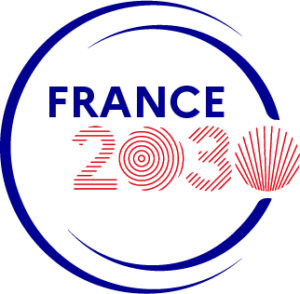- 1st floor meeting room, LEM3 – site Metz Technopôle, 7 rue Félix Savart, 57070 Metz
Under the aegis of the Medicis programme



Abstract
Hydrogen is widely regarded as a promising energy carrier for the future, due to its abundance, high energy content, and potential for clean utilization. Its combustion results in water vapor as the sole byproduct, making it a highly environmentally friendly fuel. However, the development of hydrogen-based energy systems depends heavily on the ability to store hydrogen efficiently and safely. Among the various storage methods explored, metal hydrides have emerged as a leading candidate due to their ability to store hydrogen in solid form. Compared to compressed gas or liquefied hydrogen, metal hydrides provide benefits such as high volumetric density, lower pressure requirements, and straightforward absorption mechanisms. Despite these advantages, many metal hydrides face limitations, particularly the need for elevated temperatures to release or absorb hydrogen effectively. This poses a challenge for applications requiring hydrogen storage near room temperature. In this context, high-entropy materials (defined by their composition of five or more principal elements) have attracted increasing interest. Recent advances integrating experimental techniques, thermodynamic modeling (CALPHAD), density functional theory, and machine learning have led to the discovery of new high-entropy alloys that demonstrate superior hydrogen storage performance at or near room temperature, surpassing conventional materials. This presentation highlights key research outcomes from Kyushu University in the development of such high-entropy alloys for hydrogen storage.
About the speaker
Dr. Kaveh Edalati is a renowned materials physicist and chemist at the WPI International Institute for Carbon‑Neutral Energy Research (I²CNER) at Kyushu University, Japan. He leads innovative research utilizing severe plastic deformation—especially high‑pressure torsion—to engineer nanostructured metallic and ceramic materials with enhanced functionality for clean energy applications. His team focuses on developing high‑activity photocatalysts for hydrogen production and CO₂ conversion, novel hydrides for room‑temperature hydrogen storage, and mechanically robust nanomaterials. Notably, he has advanced the activation of TiFe intermetallics and the design of Mg‑based hydrogen storage alloys through SPD techniques. His 2024 work on brookite TiO₂ demonstrated efficient plastic‑waste photoreforming into acetic acid and hydrogen under light. Dr. Edalati’s publications—including over 100 peer‑reviewed articles—span hydrogen storage, photocatalysis, phase transformations, and functional nanomaterials, cementing his leadership in carbon‑neutral energy research.





